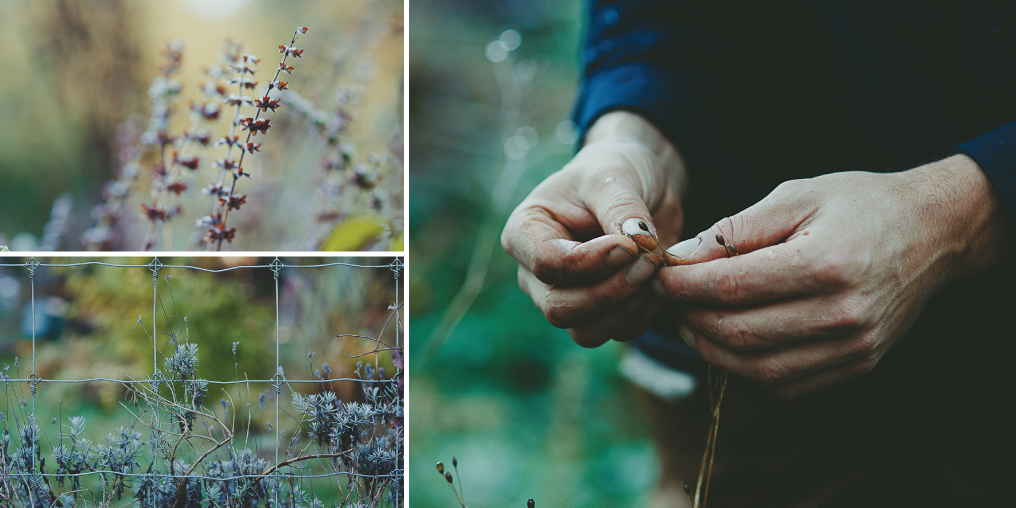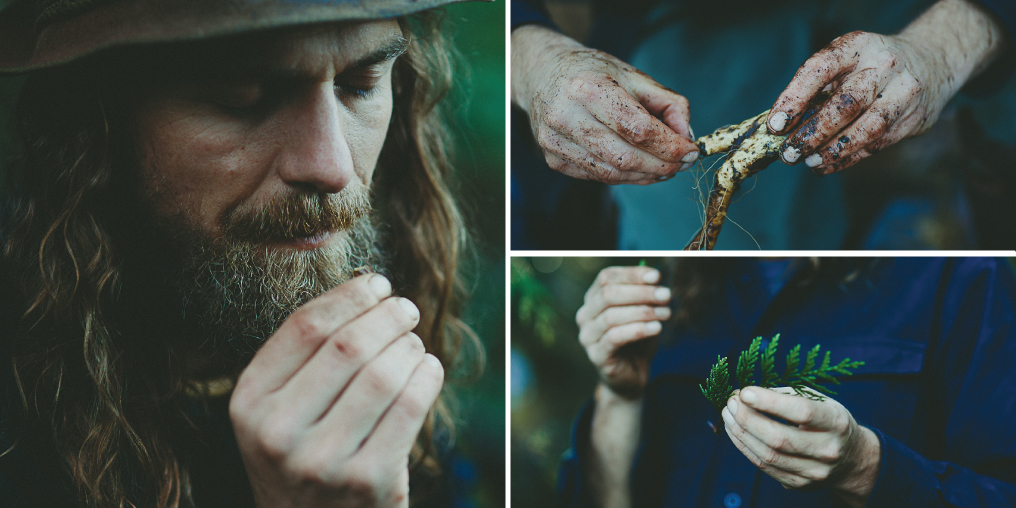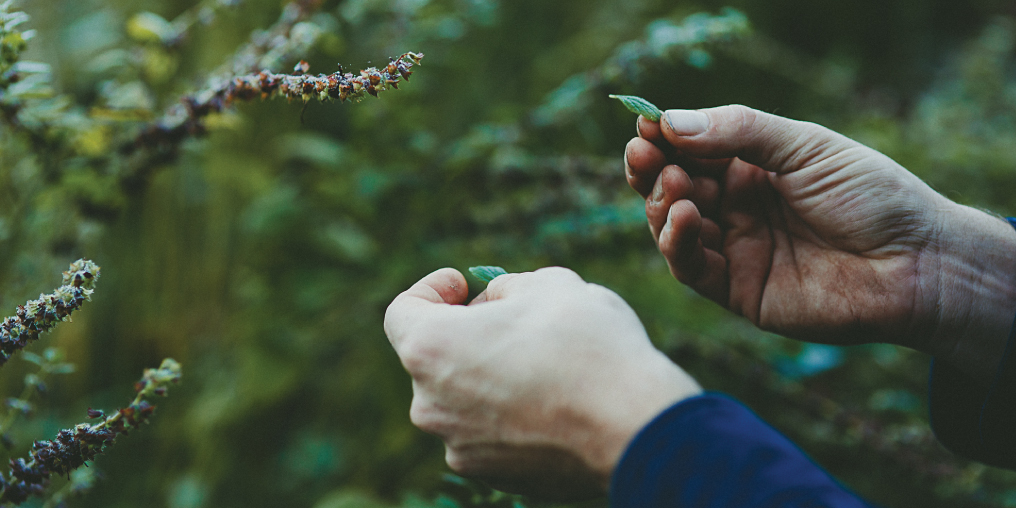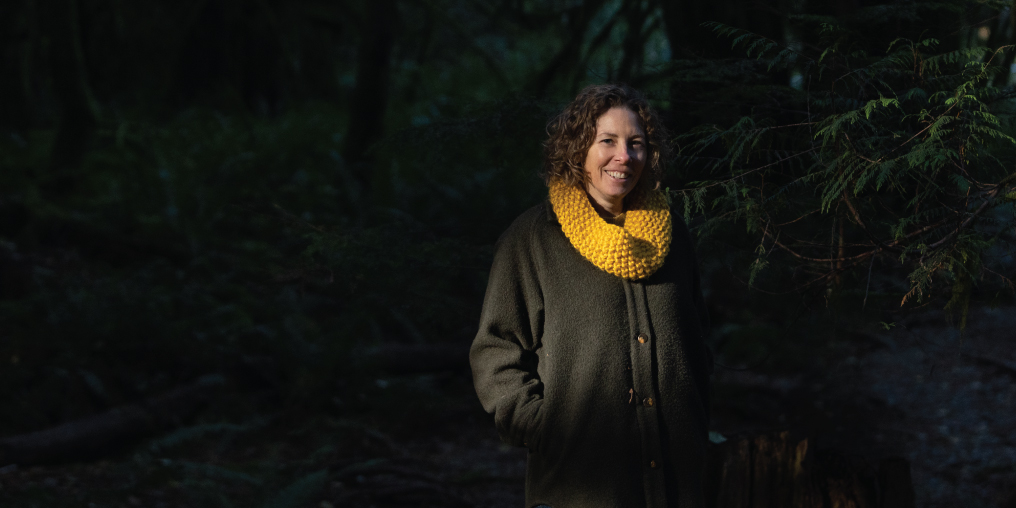The opportunities we have, the choices we make, and the decisions we face each day determine how our life will unfold. These can be at once beautiful and ugly, easy and challenging, familiar and unfamiliar, and make our lives rich. It’s important to know how we can find comfort during uncomfortable experiences and how we can best adapt to our internal and external environments. Exercise, proper nutrition, being in nature, and listening to our needs help support our hearts, and we can also get this support through herbal medicine.
Here in the Comox Valley we have access to amazing resources and support from local herbalists who can help us find what kinds of herbal remedies are correct for our individual constitutions. Inappropriate use of herbs may be problematic if not used respectfully and guidance from a professional is helpful. It’s important to keep in mind that each individual’s condition requires specific treatment and no one herb is appropriate for everyone.
INNISFREE FARM AND BOTANIC GARDEN
Chanchal Cabrera has been practicing herbal medicine for 30 years, and thrives on a life of learning. Equipped with her MSc in Herbal Medicine from the University of Wales, she’s studied with indigenous healers in the Amazon and the Andes, Ayurvedic medicine in India, and has learned the ways of First Nations from local Elders. Chanchal recently returned from Japan where she studied Shinrin Yoku—forest bathing therapy.
She and her husband have seven acres registered for growing food and medicinal plants. They host internships in organic farming and herbal medicine, as well as Gardens Without Borders, a federally registered non-profit that runs garden therapy for people with disabilities.
One of Chanchal’s favorite herbal remedies for immune support this time of year is ashwagandha, which is suitable for almost everyone. Licorice and reishi are also high on her list, but her main recommendation is more sleep! This, combined with walking in the forest or by the ocean, can change our endocrine state, reduce health risks, and help re-pattern our brain. She says, we should not start our day with cold or frozen juices and smoothies as this puts more stress on our systems to work harder to warm up.
Much to our chagrin, we should not be relying on caffeine and exotic imported adaptogens to provide an artificial boost. This is the time to hibernate, hunker down, sleep, and eat warm nourishing foods, such as spiced soups and stews with veggies, berries (for Vitamin C), fish (for Vitamin D), and soaked, slow cooked grains and beans.

BLACK BEAR HERB GARDEN AND SCHOOL
Amanda Howe has had a strong connection with plants since childhood and comes from a long line of plant lovers. In the ‘80s Amanda attended a four year herbology program, which led to an MSc in Herbal Medicine from the University of Wales. This training bridged traditional healing practices with modern biomedical sciences, providing the tools for becoming a well-rounded practitioner. During her 27 years in Canada, Amanda has been a part of and sat on the board of many organizations, including Health Canada’s Natural Health Products Expert Advisory Committee.
Her passion for plants is what drives Black Bear Herb Garden and School to educate others about plant medicine, offering a variety of workshops that introduce the magic and power of healing plants via hands-on, fun, and educational sessions that address both the energetic and scientific aspects of herbs. The school teaches workshops on plant identification and sustainable and ethical harvesting practices. The ability to harvest your own medicine is beautiful and rewarding, but she notes that care is required regarding plant identification and sustainable and ethical harvesting practices.
HARMONIC ARTS BOTANICAL DISPENSARY
Yarrow Willard’s herbalist parents passed on their love of plant medicine to their son. They created the Wild Rose College of Natural Healing in Calgary, Alberta, of which he is a graduate. These four years of training focused on a holistic approach, which includes how our bodies and plants work closely to enhance our health and wellbeing.
Following graduation, Yarrow and his wife moved to the Comox Valley to create their own practice. They realized that few herb suppliers focused on the importance of creating a place where people had access to high quality herbal medicine, and so created Harmonic Arts. Today, it offers over 300 tested and ethically sourced wild and farmed herbs from around the world. Yarrow teaches workshops throughout North America and provides articles, blogs, and free educational videos that can be found on their YouTube channel. Yarrow hopes that his work and passion will inspire others to discover and deepen their “connection to plants and the natural world.”
Yarrow strongly connects with and is constantly curious about plants here on the West Coast. Recognizing that there are polluted areas, he feels we live in one of the most sustainable and safest places in North America to wildcraft. He also stresses that over-harvesting in single spots should be avoided.
Yarrow believes that there are two, often overlooked, medicines on the West Coast that help us get through the long winters—seaweeds and medicinal mushrooms. Both are high in vitamin D2 and support many systems in the body. Seaweeds are high in minerals supporting the endocrine, metabolic, and immune systems and medicinal mushrooms are extremely useful in supporting the immune system and contain anti-pathogenic compounds that fight off seasonal illness.






